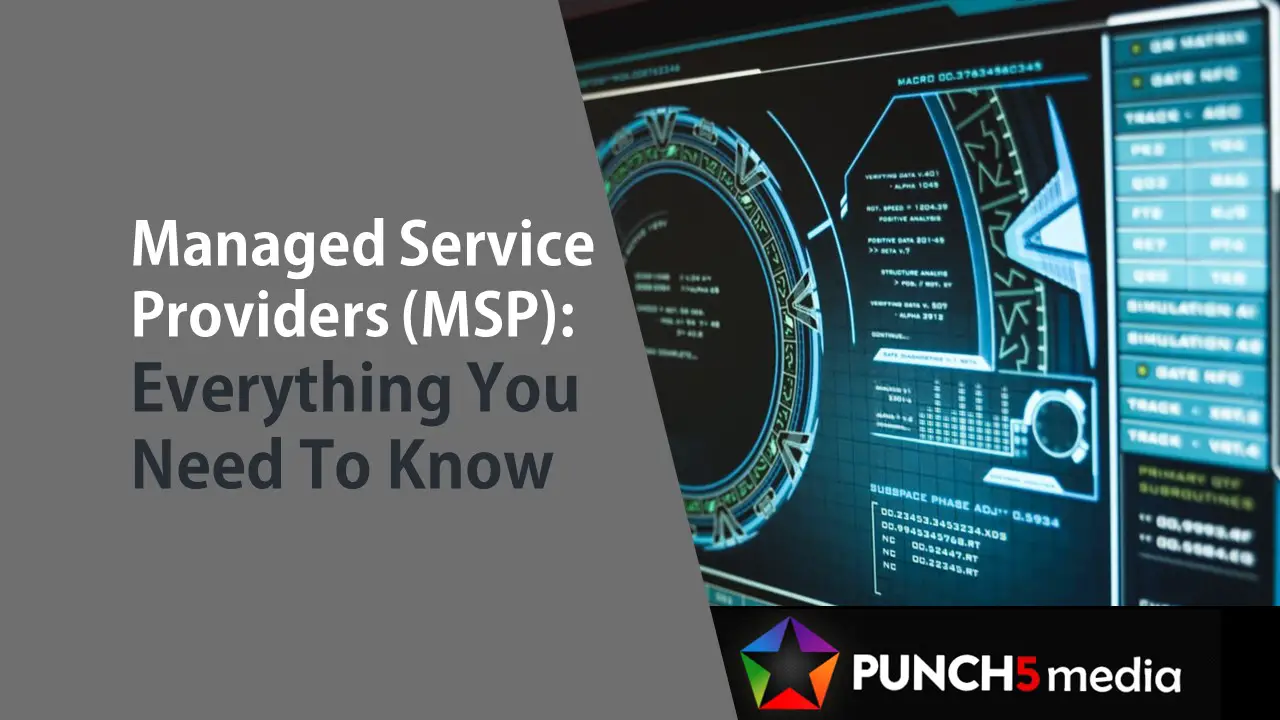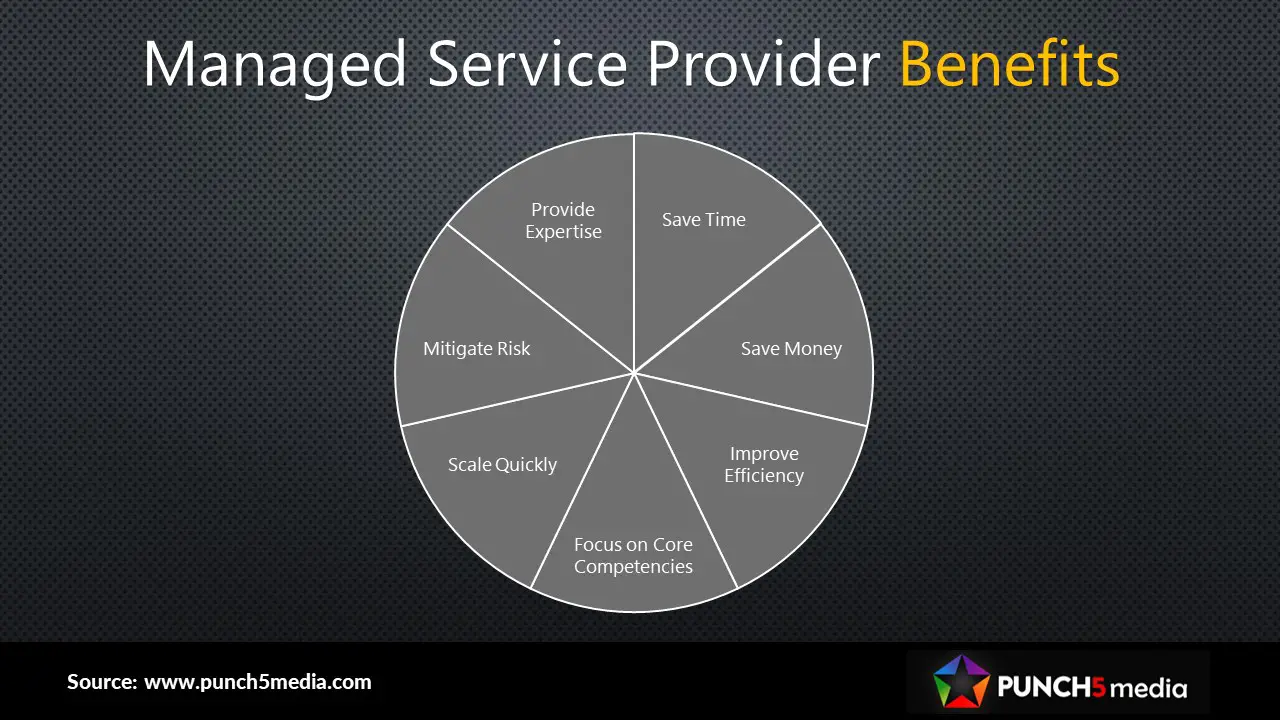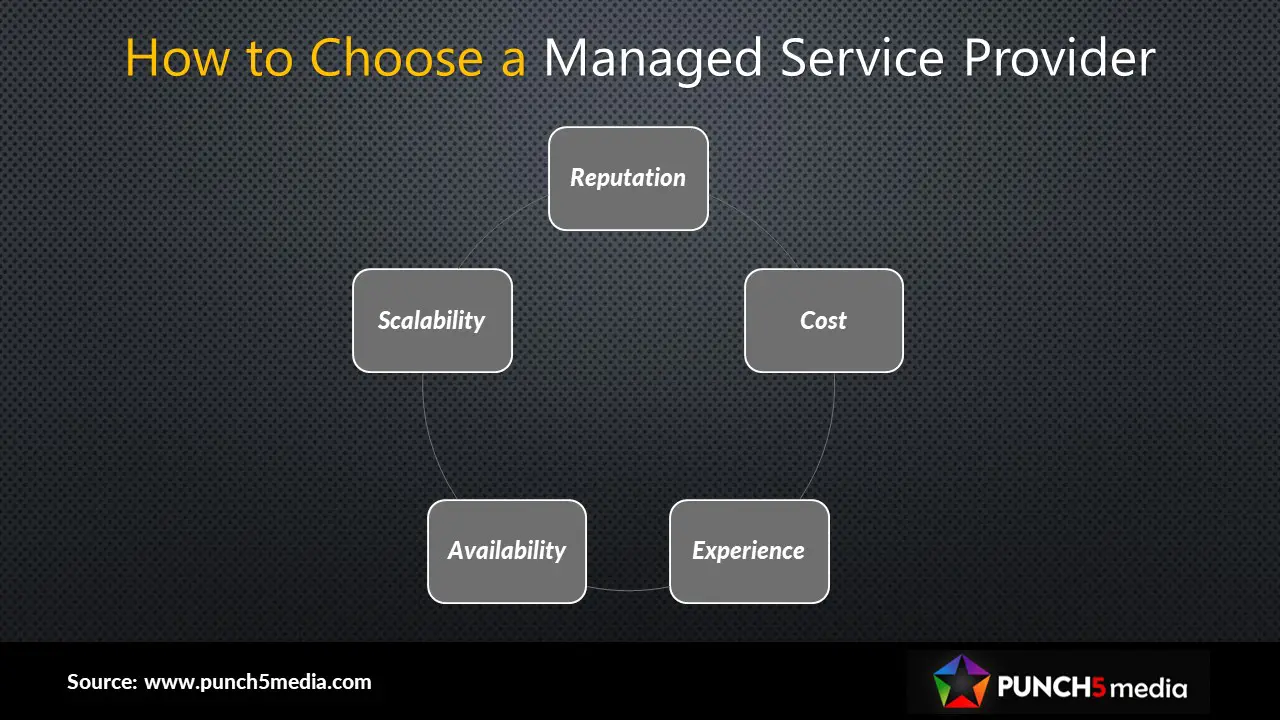Managed Service Providers (MSP): Everything You Need To Know
If you’re running a business, there’s a good chance you’re using some sort of cloud-based service. And if you’re using a cloud-based service, there’s a good chance you’re using a managed service provider (MSP).
Managed service providers are third-party companies that manage and maintain your cloud-based services and infrastructure. Many different types of businesses, including software companies and large enterprises, use managed service providers in one way or another.
Understanding the benefits of MSPs is key to deciding whether they’re right for your business. In this article, I’ll talk about some of the key benefits of working with an MSP, as well as some of the factors to consider when choosing one.
Table of Contents
What Are Managed Service Providers?

As I mentioned above, managed service providers are third-party companies that manage cloud-based services for their clients. They provide things like monitoring, maintenance, storage solutions, backup plans, security solutions and more on behalf of the client. This means the client doesn’t need to be an expert in IT or cloud-based services in order to use them.
Managed service providers can be helpful for businesses of all sizes. If you’re a small business, working with an MSP can free up your time so you can focus on other aspects of running your business. If you’re a large enterprise, working with an MSP can help you save money on IT costs.
MSPs typically charge their clients a monthly fee. The exact amount will depend on the services the client is using and the size of the business. Some MSPs also offer pay-as-you-go plans, which can be helpful for businesses that have unpredictable IT needs.
Benefits of Working With Managed Service Providers
There are several benefits of working with managed service providers. Here are a few of the most notable ones:

1. They Can Help You Save Time
MSPs can help you save time by taking care of all the behind-the-scenes work associated with your cloud-based services. This includes things like monitoring, updates, security and more. This frees up your time so you can focus on other aspects of running your business.
2. They Can Help You Save Money
MSPs can also help you save money. They often have economies of scale that allow them to get discounts from suppliers. They can also help you avoid costly mistakes by managing your services for you.
3. They Can Help You Improve Efficiency
MSPs can also help you improve efficiency. They can run your services in the most efficient way possible, which means they’re more likely to keep downtime and other issues to a minimum.
4. They Can Help You Focus on Your Core Competencies
Running an IT infrastructure takes time and expertise. If you’re not an expert in that area, it can be difficult for you to run your services as efficiently as possible. Working with a managed service provider allows you to focus on your core competencies, which can help improve the overall quality of your business.
5. They Can Help You Scale Quickly
If you need to scale your business quickly, working with an MSP can be helpful. They can help you add new services and users quickly and efficiently. This can be especially helpful if you’re expanding into new markets or launching a new product.
6. They Help You Mitigate Risk
If you’re outsourcing your IT infrastructure to an MSP, the legal responsibility of any issues that arise falls on them. This can help protect your business from costly lawsuits from breaching your service-level agreements. You can easily communicate to your customers that any downtime or data loss was the responsibility of the MSP and had nothing to do with you.
7. They Provide Expertise
MSPs have a team of experts who are responsible for managing your services. This means they have a much better understanding of their technology than you do, which can help them provide the most efficient and effective service possible.
Managed Service Provider Examples
There are many different MSPs out there. Here are a few notable examples:
1. Cloudways
Cloudways is a managed cloud hosting platform that offers its clients a wide range of features, including managed backups, security patches and more.
2. Amazon Web Services (AWS)
AWS is a cloud-based services provider that offers a wide range of services, including cloud hosting, backup solutions and more.
Google Cloud Platform is another popular managed service provider, offering everything from cloud storage to machine learning tools.
Azure is a cloud-based services provider from Microsoft that offers a wide range of features, including managed databases and Virtual Machines.
5. Rackspace
Rackspace is a managed cloud hosting provider that offers a wide range of features, including managed security and compliance.
These are just a few examples of the many different managed service providers out there. As you can see, there are many different options to choose from depending on your business’ needs and budget.
Key Services Offered by Managed Service Providers
Services offered by managed service providers can vary depending on the provider. However, there are some common services that are often offered. These services can include:
1. Cloud Hosting
Cloud hosting is one of the most popular services offered by MSPs. It allows businesses to host their websites and applications in the cloud. This can be helpful for businesses that want to avoid the hassle and expense of managing their own servers.
2. Backup Solutions
Backup solutions are another common service offered by MSPs. They can help businesses automatically backup their data in the event of a disaster. This can be helpful for businesses that want to protect their data from being lost or corrupted.
3. Monitoring Services
MSPs can also help businesses monitor their systems to ensure they are running smoothly and efficiently. This can be helpful for businesses that want to avoid downtime and other issues.
4. Security Services
Security services such as managed firewalls, intrusion detection and more are also commonly offered by MSPs. These services can help protect your data from being compromised by hackers or other security threats.
5. Compliance Services
MSPs can also help businesses comply with industry regulations. This can be helpful for businesses that are required to adhere to specific regulations, such as HIPAA or PCI DSS.
Managed Service Provider Software
Most managed service providers rely on software to help manage their services. There are a wide range of different software options available, depending on the needs of your business. Some of the most common types of MSP software include:
1. Ticketing Software
Ticketing software is designed to help businesses track and resolve issues with IT equipment and other services. This can be helpful for businesses that want to ensure issues are addressed in a timely manner.
2. Remote Monitoring Software
Remote monitoring and management software is designed to help MSPs keep an eye on their clients’ networks and systems. This can help them identify potential problems and resolve them before they become serious issues.
3. Automation Software
Automation software is designed to help MSPs automate tasks, such as patch management and data backups. This can help them save time and resources.
4. Help Desk Software
Help desk software is designed to help businesses manage customer support requests. This can be helpful for businesses that want to ensure their customers are satisfied with their service.
5. Reporting Tools
Reporting tools are designed to help businesses track the progress and performance of their MSP partnerships. This can be helpful for businesses that want to measure their ROI and other key metrics.
How to Choose a Managed Service Provider
There are many factors to consider when choosing an MSP. Some of the most important factors include:

1. Reputation
Reputation is one of the most important things to consider when choosing an MSP. You should look at review sites and talk to other businesses in your industry to see which MSPs have a good reputation for reliability, quality and customer service.
2. Cost
Cost is another important factor to consider when choosing an MSP. You should look for an MSP that offers a wide range of services at fair prices. Many MSPs offer pay-as-you-go plans and discounts to clients who sign up for long-term contracts.
3. Experience
You should also look at the experience of the MSP and its staff. This can help ensure that they have the expertise and knowledge needed to meet your needs.
4. Availability
You should consider the availability of the MSP. Ideally, your MSP should be available 24/7 in case of emergencies or other issues that require immediate attention.
5. Scalability
You should also consider the scalability of the MSP. This can be important if your business grows and you need to increase your usage of the MSP’s services.
These are just a few of the factors to consider when choosing an MSP. Be sure to do your research and choose the right provider that meets your specific business needs and budget.
Cons of Working with Managed Service Providers
There are a few potential drawbacks of working with MSPs. These include:
- Lack of Flexibility – MSPs typically have fixed contracts and pricing structures. This can be inflexible for businesses that have fluctuating needs or budget constraints.
- Dependence on Service Providers – Working with an MSP can create a dependence on the service provider. This can be problematic if the MSP goes out of business or is unable to meet your needs.
- Limited Services – MSPs typically offer a limited range of services. This can be limiting for businesses that need more comprehensive IT support. A single MSP will never cover every single area of technology that you’ll need. When you call about an issue with third-party software that’s not supported in your contract, you are not bound to receive any support.
- Physical Presence – MSPs will likely not be anywhere physically close to your business. This can make it difficult to establish a personal relationship with your MSP especially if you need on-site support. Expect to pay more if you do need any kind of physical interaction or IT support.
How to Maximize Your Relationship with Your Managed Service Provider
There are a few things you can do to maximize your relationship with your MSP. These include:
- Define Your Expectations – You should sit down with your MSP and define your expectations for the relationship. This can help ensure that both parties are on the same page and that there are no surprises down the road.
- Communicate Regularly – You should communicate regularly with your MSP. This can help keep them up-to-date on your needs and allow them to address any concerns you may have.
- Be Proactive – You should be proactive in your relationship with your MSP. This means keeping them informed of changes in your business or IT environment. It also means being open to their suggestions on how to improve your IT infrastructure.
- Be Honest – You should be honest with your MSP about your needs and expectations. This can help them provide you with the best possible service.
- Have Realistic Expectations – You should have realistic expectations for your MSP. They are not miracle workers and they will not be able to solve all of your problems. However, they can help you manage and improve your IT infrastructure.
By following these tips, you can maximize your relationship with your MSP and get the most out of their services.
Conclusion
Managed service providers can be a great option for businesses that need assistance with their IT infrastructure. However, it’s important to choose the right MSP and have realistic expectations for the relationship. By doing so, you can ensure that you get the most out of their services.
Do you work with an MSP? What has your experience been like? Share your thoughts in the comments below.


